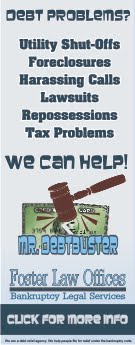(Reuters) - If knee-jerk reactions could be taxed, Pennsylvania's capital city could be closer to escaping its $315 million financial hole.
David Unkovic, the man the state appointed three weeks ago to find a way out for debt-ridden Harrisburg, initially faced a barrage of criticism, particularly regarding his past relationships with large creditors of the city.
However, he appears to be converting critics while maintaining his pledge that everyone will feel pain when he unveils his recovery plan for the city.
Unkovic was applauded by 150 people who visited a city bookstore Monday evening to hear what he had to say about his work in developing that plan.
"I want to commend you on some of your comments last week, especially concerning the fact that any credible workout to this issue is going to have to have some clawbacks in relation to the outstanding debt and our creditors," Harrisburg resident Bruce Webber told Unkovic.
Among the attendees were members of Occupy Harrisburg and Debt Watch Harrisburg, a group that has favored bankruptcy instead of a state takeover.
The 57-year-old receiver, who drew public scorn from some of the same people because of his ties to several of the creditors who are suing Harrisburg, garnered approval after the only resident to object to his appointment questioned his political ties to Republican Governor Tom Corbett.
"I'm not a Republican either, by the way. I am a Democrat but I am not a partisan person," Unkovic said.
Harrisburg's city council filed for Chapter 9 bankruptcy protection earlier in the fall, but the case was dismissed by a federal judge, paving the way for a state takeover of the city's finances. The state capital is struggling under the weight of more than $300 million in debt from a revamp of its incinerator.
"Fortunately, you don't have a political agenda . your (concern) is the 48,500 people of the City of Harrisburg," said a city employee and member of AFSCME, one of the unions that's been asked to accept concessions in budget talks for 2012.
A member of Occupy Harrisburg, an offshoot of Occupy Wall Street, even appeared to sympathize with Unkovic's task ahead when he asked, "Why did you take this job?"
Unkovic said he's met with every elected official involved in Harrisburg's debt crisis and talked with many groups, including Occupy Harrisburg and the host of Monday evening's forum, Harrisburg Hope.
He said he created a website, www.pa.gov/harrisburgreceiver, to give people a chance to share ideas about how to get the city out of debt.
Unkovic has petitioned Commonwealth Court to give him an additional 30 days to submit his recovery plan for Harrisburg, which would give him until early February, if approved.
He said he plans to stay on as receiver only as long as it takes to turn around the city.
"I'm going to go away as soon as I can. That's my plan," said Unkovic.
David Unkovic, the man the state appointed three weeks ago to find a way out for debt-ridden Harrisburg, initially faced a barrage of criticism, particularly regarding his past relationships with large creditors of the city.
However, he appears to be converting critics while maintaining his pledge that everyone will feel pain when he unveils his recovery plan for the city.
Unkovic was applauded by 150 people who visited a city bookstore Monday evening to hear what he had to say about his work in developing that plan.
"I want to commend you on some of your comments last week, especially concerning the fact that any credible workout to this issue is going to have to have some clawbacks in relation to the outstanding debt and our creditors," Harrisburg resident Bruce Webber told Unkovic.
Among the attendees were members of Occupy Harrisburg and Debt Watch Harrisburg, a group that has favored bankruptcy instead of a state takeover.
The 57-year-old receiver, who drew public scorn from some of the same people because of his ties to several of the creditors who are suing Harrisburg, garnered approval after the only resident to object to his appointment questioned his political ties to Republican Governor Tom Corbett.
"I'm not a Republican either, by the way. I am a Democrat but I am not a partisan person," Unkovic said.
Harrisburg's city council filed for Chapter 9 bankruptcy protection earlier in the fall, but the case was dismissed by a federal judge, paving the way for a state takeover of the city's finances. The state capital is struggling under the weight of more than $300 million in debt from a revamp of its incinerator.
"Fortunately, you don't have a political agenda . your (concern) is the 48,500 people of the City of Harrisburg," said a city employee and member of AFSCME, one of the unions that's been asked to accept concessions in budget talks for 2012.
A member of Occupy Harrisburg, an offshoot of Occupy Wall Street, even appeared to sympathize with Unkovic's task ahead when he asked, "Why did you take this job?"
Unkovic said he's met with every elected official involved in Harrisburg's debt crisis and talked with many groups, including Occupy Harrisburg and the host of Monday evening's forum, Harrisburg Hope.
He said he created a website, www.pa.gov/harrisburgreceiver, to give people a chance to share ideas about how to get the city out of debt.
Unkovic has petitioned Commonwealth Court to give him an additional 30 days to submit his recovery plan for Harrisburg, which would give him until early February, if approved.
He said he plans to stay on as receiver only as long as it takes to turn around the city.
"I'm going to go away as soon as I can. That's my plan," said Unkovic.

 9:49 AM
9:49 AM
 MrDebtBuster
MrDebtBuster
 Posted in
Posted in



